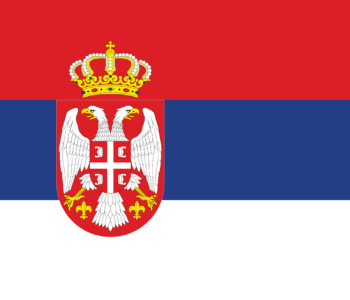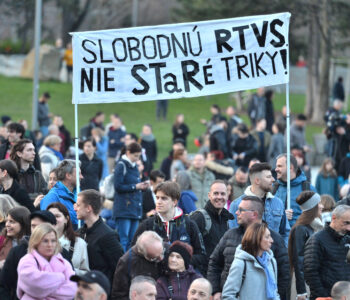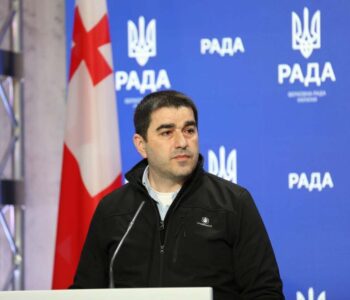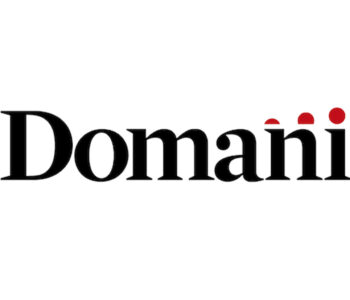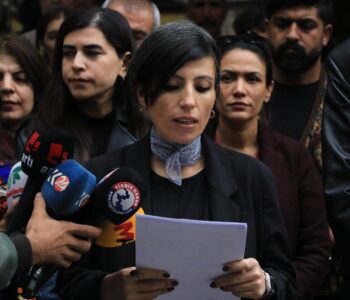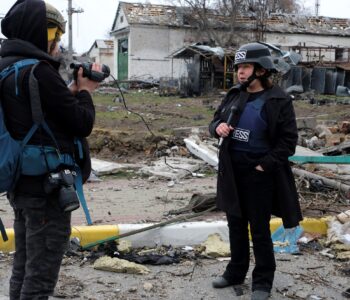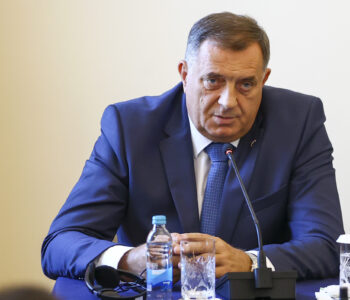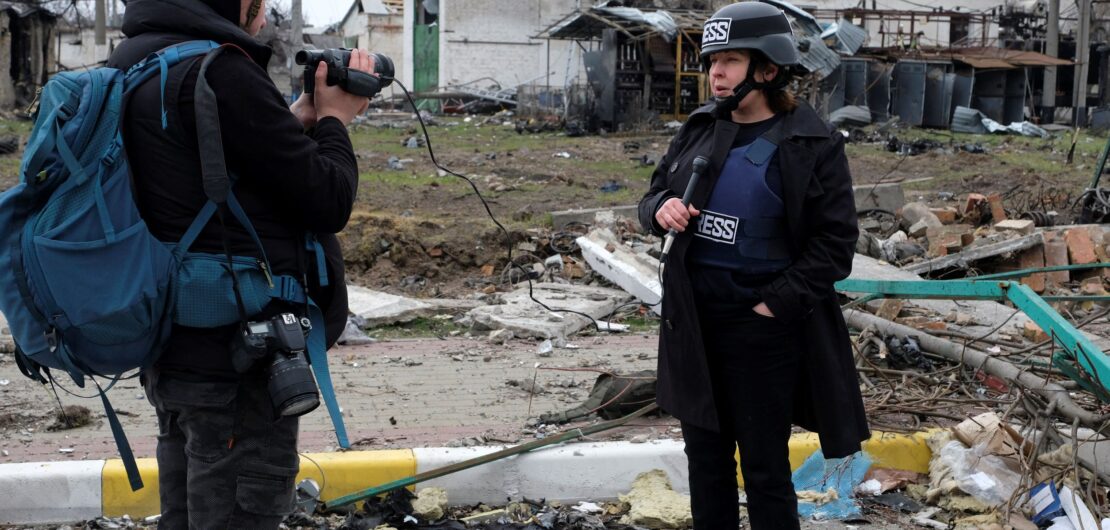 Library
Library
Ukraine: MFRR partners highlight ongoing press freedom issues
Ukraine: MFRR partners highlight ongoing press freedom issues
MFRR partners today highlight ongoing press freedom concerns in Ukraine, over two years following the start of Russia’s full-scale invasion. While Ukraine was at first quick to unite in the face of armed aggression, setting aside internal conflicts and arguments, the climate of trust between officials and independent media seems to have seriously deteriorated, two years on
Repeated surveillance of journalists
In comparison to neighboring Russia and Belarus, Ukraine has long been a haven for independent media, offering local journalists the opportunity to criticize power without fear of retribution. However, a shadow was cast on this image, when in recent months a worrying phenomenon of government surveillance of journalists re-emerged.
According to media reports, this surveillance has recently been carried out mostly by the Security Service of Ukraine, known locally as SBU. In January, journalists at investigative outlet Bihus.Info were intimidated by the publication of video and audio recordings showing some of the outlet’s camera operators consuming cannabis, amphetamine and other illegal drugs.
Later revelations by the outlet seemed to point to the incident being part of a wider surveillance operation targeting Bihus.Info, in the course of which SBU operatives would have hacked access to video cameras, as well as sent officials to follow journalists at the outlet.
In a separate incident, a group of unknown individuals attempted to intimidate investigative journalist Yuri Nikolov by banging on the door of his apartment and demanding his drafting into the army. It was unclear who had sent the individuals to Nikolov’s apartment and how they had obtained the reporter’s address.
In April, the SBU again appeared to be responsible for the surveillance of a journalist. This time, Yevheny Shulhat from Slidstvo.Info was targeted. Just a few days before the reporter published an investigation into alleged corruption by a high-level SBU official, military officers tracked him down at a supermarket near his home and attempted to draft him.
The incidents were not left unanswered by the authorities. In both the case of Shulhat and of Bihus.Info, the SBU officials allegedly responsible for organizing the journalists’ surveillance were swiftly removed from their positions, while competent authorities opened investigations.
However, efforts cannot stop here: systemic safeguards must be established to prevent SBU and other officials from targeting journalists or other critics in retaliation for their work, all while protecting journalists who report on possible misconduct or crimes by SBU and other officials. If this is not done, Ukraine risks following a pattern of state-sponsored intimidation and harassment of investigative journalists.
United news policy
In Ukraine, six of the country’s main television channels continue to conduct common, 24/7 news broadcasts, as part of an initiative called the “united news telethon”. Each channel is responsible for producing content for a given time slot, with all remaining channels broadcasting the content of the station occupying the slot.
While this initiative was initially hailed as an effort by Ukrainian media to produce common news broadcasts in the wake of Russia’s full-scale invasion, the format of these broadcasts has remained largely unchanged over the past two years, contributing to making them increasingly irrelevant, uninformative and unpopular, according to opinion polls conducted in Ukraine.
The fact that several of Ukraine’s main television channels continue to conduct common news broadcasts, 24 hours a day, seriously lowers the quantity and quality of information received by Ukrainian viewers. As a result, data has shown that the telethon’s viewership has notably fallen over the past year, and that Ukrainians have turned to anonymous Telegram channels to read what is perceived as “real” news.
The sources used by anonymous Telegram channels are often impossible to determine, as are their sponsors. This move away from the media creates a serious danger to Ukraine’s informational security, as the political agenda of anonymous channels normally remains unknown. In addition, Telegram has comparatively loose policies on hate speech and other problematic and manipulative content.
For this reason, we call upon Ukrainian authorities to seriously reconsider the format of the “united news telethon” and consider closing this project altogether, as an inefficient target of resources detrimental to Ukraine’s informational security and media diversity in the country
Frontline accreditation
As in any war, it is essential to both ensure that Ukrainian journalists can deliver accurate and timely information to the public and to create conditions that minimize risks to their safety. In this context, MFRR is concerned with the current system of frontline accreditation for journalists, and in particular the “traffic light” system under which regional army commands have the power to decide on which areas form part of which zones, establishing “red”, “yellow” and “green” zones with varying degrees of permitted access.
While a recent reform did away with the most stringent restrictions, we believe that this positive change can only be a first step in making regulations more adapted to the reality of the work of war correspondents.
The current “traffic light” system is inappropriate for several reasons. Firstly, it is not possible to update access zones swiftly enough in response to changing conditions on the ground. As a result, journalists risk being let into areas not safe enough or are prevented from entering areas where the safety situation has improved but are still under a “red” designation.
Additionally, anonymous reports by Ukrainian journalists show that military commanders on the ground regularly disregard official red zones, or impose additional restrictions on the work of journalists not required by national regulations. This is mainly related to restrictions on filming, as well as on interviewing soldiers, with many of these cases being overly restrictive.
While we again acknowledge and are grateful for the Ukrainian authorities’ commitment to protecting journalist safety, we believe in a need for a discussion about a return to more flexible arrangements for journalists’ access to the frontline, for instance by instead formulating general recommendations to local-level commanders on the conditions under which journalists should be allowed access to combat zones.
While great care must be applied when formulating these new regulations, we believe this more flexible system would in the end create safer and equal conditions for journalists, while also ensuring that journalists can continue to provide accurate and timely news to the Ukrainian public.
MFRR partners continue to stand with Ukraine, and Ukrainian journalists in particular, in their resistance to Russia’s war of aggression. Recommendations made to Ukrainian authorities are made based on the premise that they will help Ukraine in building a democratic society respectful of media freedom, which ultimately will contribute to Ukrainian victory.
This statement was coordinated by the Media Freedom Rapid Response (MFRR), a Europe-wide mechanism which tracks, monitors and responds to violations of press and media freedom in EU Member States and Candidate Countries.

